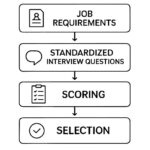Menu list
Introduction
Achieving and maintaining a healthy weight is a journey that goes beyond fleeting trends or strict regimens. With rising public awareness and countless options available, many people in Richmond and beyond are looking for approaches that blend evidence-based science with practical application. One such option is personalized care offered by Weight Loss Richmond, which combines expert guidance with long-term support. The core of real weight management is building sustainable habits that fit into your everyday life.
Rather than chasing after fad diets or unrealistic promises, focusing on practical strategies rooted in credible research makes the process both achievable and rewarding. Embracing this outlook leads to weight loss and better health, increased confidence, and lifelong well-being. This article breaks down actionable ways to lose weight, backed by science and tailored to real-life routines, to help you make informed and lasting changes.
Sustained weight loss results from understanding how the body works, making mindful choices, and nurturing positive daily routines. A balanced perspective emphasizes gradual progress, flexible nutrition, enjoyable movement, and a constructive mindset. Proper health emerges from habits you can stick with for years—not weeks.
The following sections offer a roadmap to demystifying weight loss, highlighting why real change involves physical and mental shifts. Integrating these practical techniques and supportive resources empowers you for true transformation and health.
The Science Behind Weight Loss
Weight loss is much more than a matter of willpower. Science shows that our bodies are complex systems designed to maintain balance. Your genes, hormones, and metabolic rate are powerful forces influencing how you lose—and keep off—weight. The National Institutes of Health (NIH) notes that metabolism naturally adapts to conserve energy, often challenging weight loss after an initial drop. Understanding these processes allows you to set achievable expectations and focus on strategies that respect your body’s biology.
Why Quick Fixes Miss the Mark
Extreme diets and miracle solutions are often tempting, especially when promises of rapid results dominate marketing. However, decades of research and clinical experience confirm that emphasizing speed over sustainability typically leads to setbacks. The “yo-yo” effect—repeated cycles of losing and regaining weight—can create additional stress on your metabolism and negatively affect mental health. Prioritizing gradual, steady changes supports long-term success by giving your mind and body time to adjust and build resilient, healthy habits.
Nutrition Matters: It’s Not Just Calories
Caloric intake plays a role in weight loss, but what’s on your plate—and how you eat—matters as much. Whole, unprocessed foods like fruits, vegetables, whole grains, and lean proteins support satiety and better nutrition than heavily processed alternatives. According to experts at CNN Health, balanced eating that avoids extremes helps curb cravings and nourish your body. Building meals around fiber, healthy fats, and quality protein isn’t about deprivation; it’s about fueling your life for energy and satisfaction.
Movement and Motivation: Finding Activity That Sticks
Physical activity is key to supporting weight loss and protecting muscle. The secret is consistency, not intensity. If jogging isn’t enjoyable, try something more appealing like swimming, dancing, or walking in nature. Even non-traditional forms of movement—gardening, vigorous cleaning, or active commuting—count toward your goals. The Centers for Disease Control and Prevention (CDC) highlights the importance of finding an activity you look forward to so motivation sustains itself. Over time, these small steps become second nature.
Mindset and Support: The Hidden Ingredients of Success
Weight loss isn’t achieved by willpower alone. Creating a supportive environment—through friends, professional guidance, or peer communities—dramatically increases your chances of long-term success. Practicing self-compassion is equally vital. Everyone hits bumps in the road, but gentle self-talk and resilience help you get back on track more quickly. Real transformation comes from learning through setbacks and celebrating even the smallest wins.
Everyday Habits for Lasting Change
- Plan meals and snacks ahead of time to reduce impulsive, unhealthy choices.
- Keep a refillable water bottle handy and pay attention to hydration.
- Prioritize quality sleep, as consistent rest is linked to better weight control.
- Set realistic, incremental goals to stay encouraged and gauge progress.
- Schedule weekly check-ins to reflect on what’s working—or needs tweaking.
- Find non-food outlets for stress, such as walking, journaling, or contacting a friend.
Common Questions Answered
- How fast should I lose weight?
- Aim for one to two pounds per week, as this approach will most likely be safe and sustainable in the long run.
- Do supplements really help?
- Most weight loss supplements have limited evidence of benefit if you already eat a well-balanced diet. Always consult a healthcare professional before trying new supplements, as many are unregulated or may interact with medications.
- Can I eat late at night?
- Meal timing is less significant than your overall patterns of intake and nutrition quality. Some people find sticking to routine meal times helpful for avoiding mindless snacking, but the total picture of your eating habits matters most.
Conclusion
Achieving sustainable weight loss is less about quick fixes and more about embracing balanced, science-backed choices that can be maintained for life. By combining mindful eating, regular physical activity, and healthy daily routines, individuals create a foundation for long-term success. Small, consistent changes often prove more potent than drastic short-term efforts, supporting physical and emotional well-being. Professional guidance can further personalize strategies, helping to navigate challenges and stay motivated. Ultimately, lasting results come from patience, persistence, and a commitment to healthier living—allowing individuals to reach their goals and maintain them with confidence and resilience.





